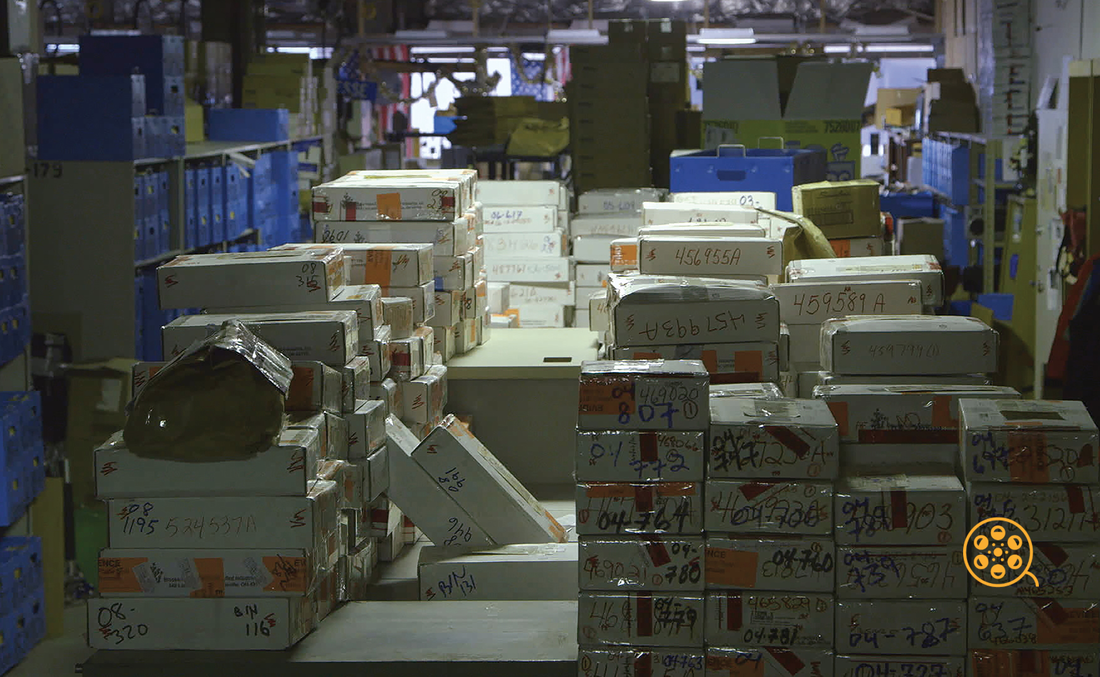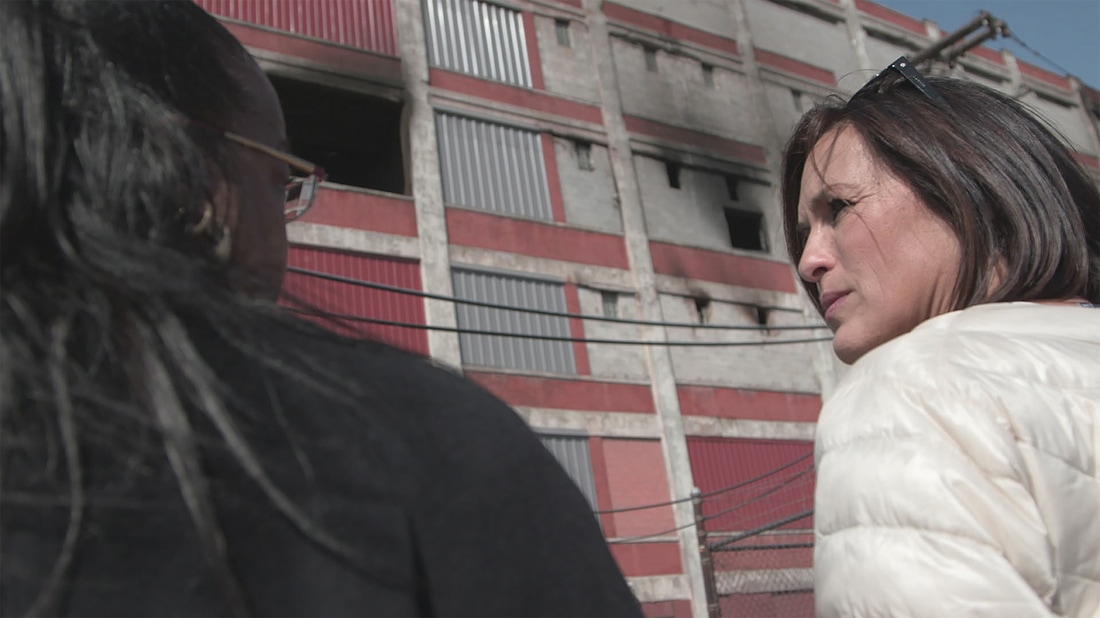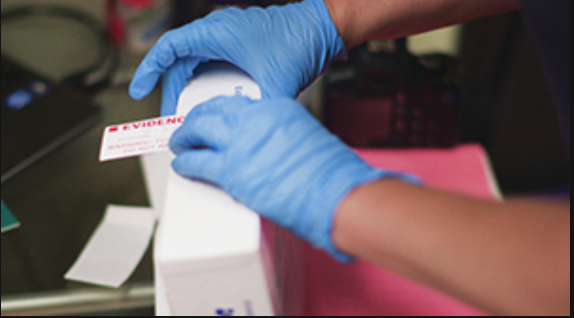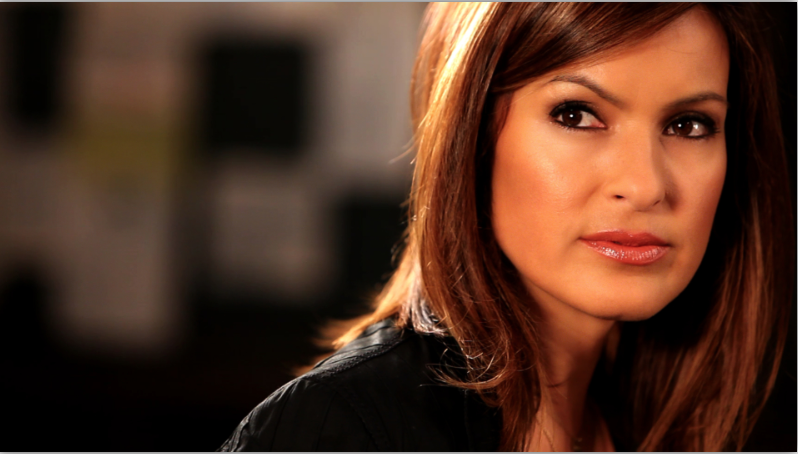Tribeca dispatch: documentary 'I Am Evidence' exposes shocking lapse in sex assault investigations4/28/2017 Film examines why tens of thousands of rape kits remain untested nationwide, letting offenders go free There are documentaries that make you shake your head and go, "How can this be?" I Am Evidence is one of them. The film produced by Law & Order: SVU's Mariska Hargitay exposes a disturbing but under-publicized situation: of the countless rape kits performed on assault victims across the country in recent years, tens of thousands have never been tested. Let that sink in. "Right now we have about over 200,000 [untested] rape kits that have been counted so far from the jurisdictions that have reported. So it appears this problem is just about everywhere," Trish Adlesic, co-director of I Am Evidence, told Nonfictionfilm.com. "It's a public safety issue that the majority of the population in the country doesn't know about," added co-director Geeta Gandbhir. Most men are not rapists, of course, but the ones who are perpetrate again and again and again. And that's the problem with not using the DNA that's available because we're allowing them to continue to harm people. HBO is set to air the documentary, which just premiered at the Tribeca Film Festival. The film follows multiple strands, including the efforts of Kym Worthy, prosecutor of Michigan's Wayne County, to address the massive backlog of untested rape kits in her jurisdiction and elsewhere. Her staff discovered that in Detroit alone more than 11,000 rape kits had gone untested, many of them stored in an abandoned warehouse (pictured in the photo above). The advent of DNA testing and the creation of the FBI's CODIS system -- a database of DNA profiles and forensic samples -- make the examination of rape kits all the more imperative. A hit on one tested kit often links to other unsolved sexual assaults, revealing the trail of a serial rapist. "So when you don't test the kits the perpetrators remain free to assault other victims. In general it takes seven to 11 rapes before the perpetrator gets caught," Adlesic stated. "Far too many." These kits are one of the best crime-fighting tools out there. "These kits are one of the best crime-fighting tools out there. And the fact that they are not being utilized in and of itself is a tremendous shame and very alarming," Gandbhir said. Given that, what possible reason could there be for failing to test rape kits? I Am Evidence makes a compelling case that it comes down to inherent bias against victims of sexual assault. The reasons "are deeply rooted in our culture around the way in which this crime is treated by law enforcement and in the nature of not believing victims. And ultimately also blaming victims and not taking these cases seriously enough to actually pursue and investigate them." A disproportionate number of those victims whose rape kits are never tested just happen to be women of color from poorer backgrounds. Imagine that. "The [untested] rape kits are a symptom of greater societal ills such as systemic and structural racism, sexism," Gandbhir maintained.  Untested evidence. Photo courtesy Tribeca Film Festival/HBO Untested evidence. Photo courtesy Tribeca Film Festival/HBO In I Am Evidence a number of rape victims speak -- recalling not only the sexual assault they suffered, but the double trauma of seeing their stories go largely ignored by investigators. "Some of them didn't even get their kits tested. Some of their kits were thrown away," Adlesic told us. "They so wanted to be heard... We had a very intimate conversation and they felt safe. It felt like they were going to be respected and treated in a way that they hadn't been in the past." The driving force behind the documentary is Hargitay, who has starred in more than 400 episodes of Law & Order: SVU, playing Detective (now Lieutenant) Olivia Benson, leader of an NYPD unit that investigates sex crimes. In 2004 the actress founded the Joyful Heart Foundation to support survivors of sexual assault, domestic violence, and child abuse. "When she found out about the [rape kit] backlog she wanted it to be the mission of the foundation to work on ending the backlog and furthering the discovery of the backlog across the United States," Adlesic explained (the director worked on Law & Order: SVU before embarking on her career as a documentary filmmaker). For more on the film and the backlog of untested rape kits visit these sites: IAmEvidencethemovie.com and EndtheBacklog.orgTo address the shocking state of affairs, the filmmakers are urging action on several fronts.
"The ideal thing would be for there to be legislation which mandates that all kits are tested," Gadbhir said. Adlesic echoed that. "We need to have laws in place to protect this from ever happening again." They are also calling for enhanced training of law enforcement personnel so investigators better evaluate sexual assault victims, based not on their biased expectation of how someone "should" act in such a situation, but on actual research into the psychology of trauma. Adlesic said, "One of the key goals is that our society have a better understanding of the way in which survivors need to be treated and cared for by our system, our law enforcement system. And also cultural changes in understanding this kind of violence need to be addressed because when we blame and we don't believe victims right out of the gate they don't stand a chance for justice." |
AuthorMatthew Carey is a documentary filmmaker and journalist. His work has appeared on Deadline.com, CNN, CNN.com, TheWrap.com, NBCNews.com and in Documentary magazine. |
- Home
- News
- Videos
-
Galleries
- 2019 Tribeca Film Festival
- Full Frame Documentary Film Festival
- 2019 SXSW Film Festival
- SXSW 2018 Gallery
- 2019 Sundance Film Festival
- Outfest 2018 Photo Gallery
- Outfest 2017
- Sundance 2018 Photos
- 2017 LA Film Festival
- 2017 Cannes Film Festival
- Tribeca Film Festival 2017
- SXSW 2017 Gallery
- 2017 Berlin Film Festival
- Sundance 2017 Gallery
- 2016 Los Angeles Film Festival
- Cannes Film Festival 2016
- SXSW 2016 Gallery
- Berlinale 2016 Gallery
- Sundance 2016 Gallery
- Filmmaker Gallery
- About
- Contact
Proudly powered by Weebly
- Home
- News
- Videos
-
Galleries
- 2019 Tribeca Film Festival
- Full Frame Documentary Film Festival
- 2019 SXSW Film Festival
- SXSW 2018 Gallery
- 2019 Sundance Film Festival
- Outfest 2018 Photo Gallery
- Outfest 2017
- Sundance 2018 Photos
- 2017 LA Film Festival
- 2017 Cannes Film Festival
- Tribeca Film Festival 2017
- SXSW 2017 Gallery
- 2017 Berlin Film Festival
- Sundance 2017 Gallery
- 2016 Los Angeles Film Festival
- Cannes Film Festival 2016
- SXSW 2016 Gallery
- Berlinale 2016 Gallery
- Sundance 2016 Gallery
- Filmmaker Gallery
- About
- Contact




 RSS Feed
RSS Feed